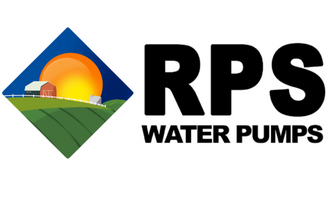

Answering Your Water Pump Questions
with RPS Engineer Mike

What happens if a submersible well pump is oversized?
A submersible well pump being oversized can sometimes be a bad thing, but sometimes it won’t be an issue. Whether or not it is an issue depends on a number of factors, including the stats of the well it was put into and what the pump is being used for. Generally, it is a better idea to slightly oversize a residential water pump in comparison to undersizing one, but oversizing can come with some issues of its own.
Drawbacks to Having a Well Pump That is Too Big
One of the first issues is the cost. Drastically oversizing your well pump will mean that you are paying more than you need to for a well pump. The difference between a 1HP pump and a 5HP pump can be thousands of dollars, and if you don’t need a 5HP pump then you may be paying thousands of dollars more than you have to. Something else to keep in mind is that this isn’t just upfront costs, as a 5HP pump draws almost three times as much power as a 1HP pump does. So you are paying more on your power bill every month for a pump that is larger than you require.
Having too much pump for your well can also increase cost for water well supplies, as it may require larger gauge wire to install a pump with a more powerful motor. Wire costs can get very high as you move up in wire size, and it can often end up costing more than the pump itself! If you oversize your pump, be prepared to pay more upfront for materials as well as a higher monthly cost due to the electricity demands.
Another problem that can arise when oversizing a water pump is that you run the possibility of pumping your well dry. This very much depends on the specific well and what kind of flow rate the well is capable of producing, as well as the specific pump that is put in the well. So this isn’t something that will surely happen, but the risk is higher if you oversize your pump. To go into more detail, wells have what’s called a “refresh rate” or “recharge rate” which says how many gallons per minute the well is capable of producing. When you get a new well drilled, the well driller will often test the refresh rate and mark it on the well report. Let's take an example of a well with a refresh rate of 20 GPM. If you put a pump in that 20 GPM well that is pumping slower than 20 GPM, then the water level of your well should not change as it is being refilled faster than you are pulling from it. If you put in a pump that does more than 20 GPM, that water level will start to drop as you are pumping, and if you pump for long enough the level will reach the pump and the pump will start pumping air and has a risk of overheating. In some cases, this may even create an air lock in the plumbing system, which blocks water flow entirely and requires manual intervention to resolve. This can be avoided with a low water sensor that is designed to shut your pump down if it starts pumping air, but that is another added cost that can be avoided in some cases by just going with a smaller, slower producing pump.
If you need help getting sized for the correct well pump so you don’t end up with an oversized system, feel free to reach out to one of our pump specialists at 855-560-5670.
If you want more info on water pump sizing, check out this blog about whether it is better to oversize or undersize a well pump!
Take the Next Step to Water Independence
Learn More About Water Pumps
-
 If you’re considering replacing a well pump and it’s your first time, you may have questions about long it may take. We often say a full install only has to be a couple of hours, but is that actually accurate?Read now
If you’re considering replacing a well pump and it’s your first time, you may have questions about long it may take. We often say a full install only has to be a couple of hours, but is that actually accurate?Read now -

How many GPM is a good well pump?
Water needs can differ significantly depending on circumstances, and you may need a submersible well pump with a significantly higher or lower flow rate, depending on household size, irrigation needs, and sprinkler use.Read now -

Can you put in too big of a pressure tank?
When it comes to sizing a well pressure tank, there really isn’t an upper limit as to how big of a tank you can put in. There are some pros and cons to different size pressure tanks, and they can have an impact on the lifespan of your pump.Read now





